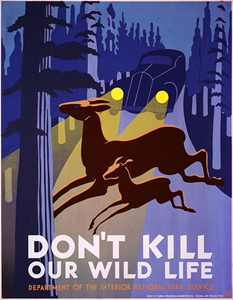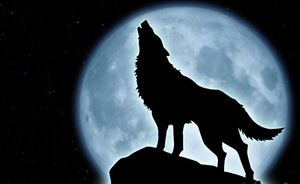Howl At The Moon Day 2024 is on Saturday, October 26, 2024: Why does wolf howl during full moon?
Saturday, October 26, 2024 is Howl At The Moon Day 2024. National Howl at the Moon Day! - Howl at the Moon National Howl at the Moon Day!
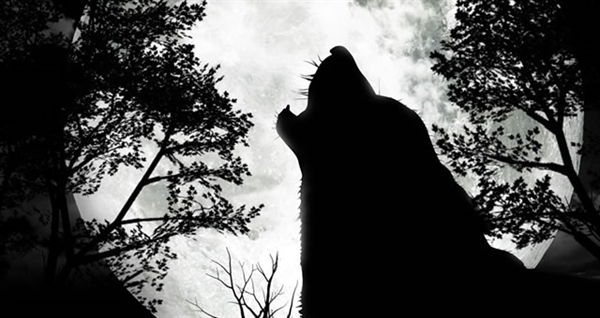
Release your inner wolf and go wild – full moon or otherwise! Why don't you get along with your buddies and exercise your very best werewolf impressions? Go easy around the biting, though.
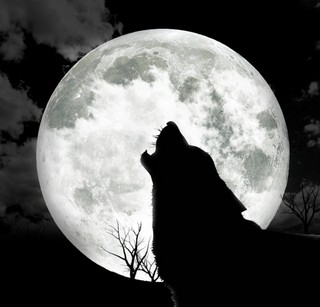
Despite the assertions of popular mythology, the wolf does not howl only during the full moon. Wolves howl during the day, at night, and any time of year, no matter what the moon is doing. Wolves howl most often at dawn and dusk, when they are most active, and during late January and early February, the breeding season. Wolves do not howl to "strike terror" into the hearts of their prey. Prey can smell that wolves are around and do not need to be warned by sound of their presence — and it does the wolves no good to warn the prey that they are hunting. Wolves hunt in silence, and make use of the advantage of surprise whenever they can.
A wolf’s howl may be heard up to ten miles away depending on weather conditions and terrain. There are several different kinds of howl, and each has a different meaning depending on the context in which it is used. The chorus howl, where three or more wolves howl together, is used both to call the pack members together and to warn other packs of the presence of the howling wolves. The solo howl, howled by one wolf, is primarily used to attract a mate or to relocate a pack from which the lone wolf has been separated. Duet howls, by two wolves, have different meanings depending on whether the wolves are howling simultaneously or alternately, and on the histories of the two wolves.
Chorus howls may become rallies, where the howling wolves and sometimes the whole pack come together in a mob of wagging tails and sniffing noses. The wolves greet each other during a rally and act very excited. Lower-ranking wolves will often rally to higher-ranking wolves, directing their greeting behavior primarily toward the dominant animals and following them around as they howl, offering them submissive greetings and affirming their higher status. Sometimes rallies end in small arguments as the greeting ceremony brings two wolves who would rather not be near each other into close contact as they greet others in the group.
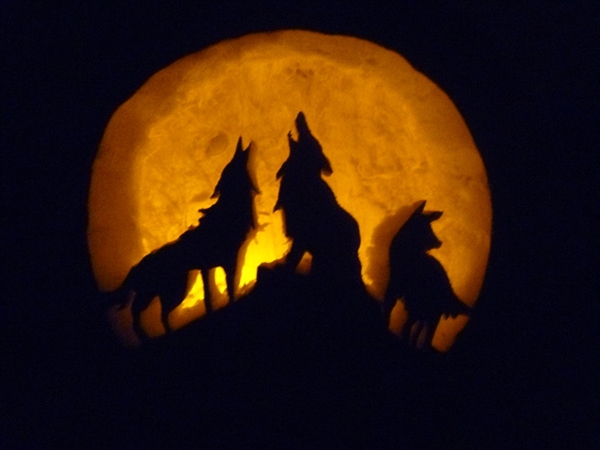
Why do wolves howl to the moon?
They don't howl at the moon. They howl to communicate with each other as the sound carries over long distances quite well. They'll howl on moon-less nights and during the day as well.
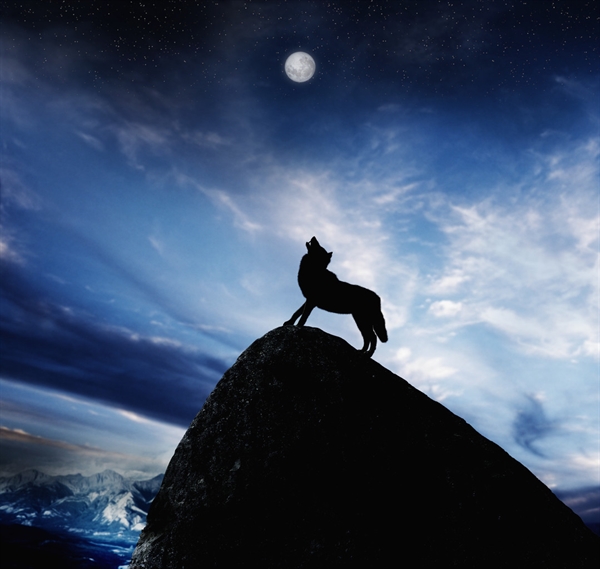
Why do wolves howl at the moon,...?
Wolves howl for many different reasons. When they are spread out, pack members will howl to stay in touch with the rest of the group. Wolves also warn other wolves away with their howls. Sometimes they howl to celebrate as a pack a successful hunt. On a calm day, howling can be heard 120 square feet. After a wolf has found a mate they must find a den, once they have they may howl a few times to show that they are marking their territory.
At Full Moon
Howling is used as a form of long- distance communications during hunting or traveling, sort of how we use telephones today. Wolves and dogs don't howl at the moon. It's easier to howl or make long oooo noises when your windpipe is straight,so dogs lift their heads to the sky. It only looks like they're howling at the moon. They don't "howl at all moons" actually, although research has shown that wolves don't howl as much when a there is a New Moon.
Howling
Today, wolf howling is one of the most distinct and well-studied animal vocalizations. The ancestors of domesticated dogs, wolves howl as a form of long-distance communication, conveying a range of information. Because of the high pitch and the suspension of notes, the sounds of wolf howls can carry as far as 6 miles (9.6 kilometers) in the forest and even 10 miles (16 kilometers) across the treeless tundra
Wolf howls serve as GPS systems, sing-alongs and fire alarms -- all rolled into one. In fact, the purpose of wolf howls isn't terribly different from the reasons humans raise their voices to the wind. In general, the primary reasons why wolves howl include:
A rally cry for the pack to meet up
A signal to let the pack know of a wolf's location
A warning for outside wolves to stay out of a pack's territory
============================
Baby Beauty

